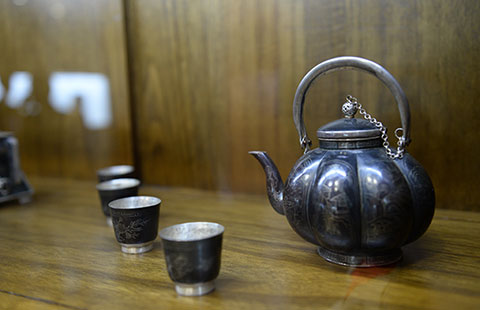First-class medical care for the wealth
By Liu Zhihua (China Daily) Updated: 2012-07-18 03:03First-class medical care is available in China, not only to expats, but also to those with deep pockets in the major cities. Liu Zhihua reports.
More well-off Chinese are opting for expensive private hospital care, rather than waiting their turn at public hospitals.
Ren Ni, director of an international exhibition company, had her laser eye surgery recently at a private eye clinic of Singapore Medical Group and was totally satisfied with the excellent service.
"I am very busy, and cannot afford the long waiting time at public hospitals," Ren says. "At a private healthcare agency, I can decide when to receive the treatment to minimize disruption at work."
She says the clinic she went to has first-class facilities, and is furnished like a lavish hotel.
Each consultation was thorough, which reassured her, Ren says, and the doctor spent hours ensuring she understood the procedure.
"They didn't try to sell the surgery to me. I went for the surgery because it suited me," Ren says.
It was not the first time Ren opted for a private clinic. In the last four years, she has had private dental care at a clinic near her home.
"I receive better service at these private medical agencies. If I can't get an appointment at private hospitals, I'll go to exclusive clinics at public hospitals."
Private hospitals are now targeting rich Chinese like Ren. Previously, most of their patients were expats.
"The number of Chinese clients has been increasing rapidly since 2006, especially in departments such as obstetrics, gynecology and pediatrics," says Zhu Yafei, a publicity officer with United Family Healthcare, the country's first — and one of the largest — international network of hospitals and clinics.
UFH opened its first hospital in Beijing in 1997 and now runs dozens of clinics and hospitals in Beijing, Shanghai, Tianjin, Guangdong provincial capital Guangzhou and Wuxi in Jiangsu province.
"When we first set up UFH, nearly 100 percent of our clients were foreigners," says Pan Zhongying, vice-president of UFH and general manager of Beijing United Family Hospital and Clinics.
"We knew that some day we would have lots of Chinese clients, but we didn't expect the day to come so quickly."
Pan says 40 percent of its clients now are Chinese. In departments, such as pediatrics, there are more Chinese than foreign patients.
"China has great market potential for high-end medical services," Pan says. "There are so many rich Chinese."
Wang Kun, a full-time housewife in Beijing, is another regular at a private hospital and clinic.
When her family returned to Beijing from Germany in 2008, her real estate agent recommended several high-end hospitals and clinics to her.
She chose the one nearest to her home with a good reputation. She was surprised at the hospital's excellent service.
Once, her toddler had fever, diarrhea and was vomiting. The girl refused to eat and drink.
Wang called and briefed the hospital. When she arrived at the emergency room, a pediatrician was already on standby.
"The emergency room had only general practitioners, but they had the pediatrician over specially for my daughter. I was both surprised and assured," Wang recalls.
The girl was diagnosed with a virus infection and was hospitalized for nearly a week. The ward was about 25 square meters, with two beds — one for the child and the other for her parents — and a restroom attached.
"The professionalism and kindness of the employees touched me," Wang says. "I was very concerned whether I could get good medical care on returning to China. After living abroad for so many years, I was accustomed to the foreign medical care system. But my worries were unfounded."
Wang says most rich Chinese she knows, who have lived overseas, care more about the quality and convenience of medical care, rather than the money they have to pay.
Ciming Check Group, a leading private healthcare agency in China, set up Oasis International Wellness Club in Beijing in mid-2011. They charge at least 800,000 yuan ($125,500) for 10-year membership.
The club provides members with free extensive health checkups, tailored health management guidance, private doctors, and charges international medical tours.
Their target clients are Chinese.
Xu Qiong, a publicity officer of the group, says its membership has increased rapidly, although he refuses to reveal the figures.
But clubs like Oasis are not accessible to everyone in China — only those in the major cities and with deep pockets.
Contact the writer at liuzhihua@chinadaily.com.cn.
- Chinese culture watchdog keeping close eye on videogames
- Massive telescope's 30-ton 'retina' undergoes final test
- Books bridge the cross-Straits divide
- Mainland director wins best leading actor award in Taiwan
- High-tech hub draws business start-ups
- China's climate act could be prevent 684,000 deaths by 2030
- China issues snow storm warnings
- 22 miners trapped in NE China coal mine
- Xi calls for emulation of Hu Yaobang
- New Urumqi-Iran rail route proposed







